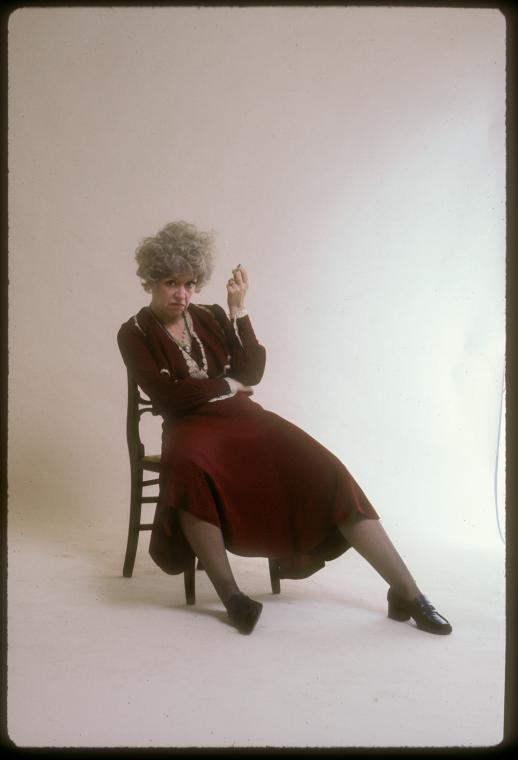Archives
An Introduction to the Dorothy Loudon Papers

As it happens, Ms. Loudon chose another line of work. An acclaimed nightclub singer, television performer, and theater actress, Loudon's most famous role was that of Miss Hannigan in the original 1977 production of Annie. The Tony Award she won for that performance opened the door for leading roles in a series of Broadway hits: Ballroom, The West Side Waltz, Noises Off, and Jerry's Girls.
But, in addition to being a star, Loudon was a saver.
An only child, adored and encouraged by her parents, Loudon seemed to intuit from the very beginning that she would be a success. While many prominent artists don't start keeping memorabilia until after their first brush with fame — an epiphany of, "hey, somebody will be interested in this stuff someday" — Loudon's documentation of her earliest professional work is just as voluminous as her last. Her meticulous record-keeping captured in amber a series of semi-forgotten worlds: the Manhattan cabarets of the 1950s; the live television variety shows and theatrical touring companies of the 1960s; and the Broadway whirlwind of the 1970s and 1980s.
Eventually, Loudon's scrapbooks became known throughout her Broadway circle, and something of a community effort. Friends, journalists, publicists, and her devoted agent, Lionel Larner, often sent her obscure clippings. During his last years her father, who lived to the age of 93, became an enthusiastic scrapbooking consultant and de facto assistant archivist from his room at the Actors' Fund Home in Englewood, New Jersey.
After Loudon's death in 2003, the Dorothy Loudon Foundation donated her papers to the New York Public Library for the Performing Arts. In all, the collection comprises 20 linear feet, housed in 75 archival boxes. (If you can't visualize that, it would fill two large bookcases and then some.) The centerpiece of Loudon's archive is a set of 37 scrapbooks, into which she pasted her most treasured photographs, correspondence, and newspaper and magazine articles.
Loudon created her scrapbooks with a curatorial perspective, arranging items roughly in chronological order but also in attractive arrays that draw the eye around the pages. And even the way she constructed her scrapbooks, Loudon had a sense of drama.

That's a classic three-act structure, one that Loudon tacitly followed as she divided her memorabilia between the three Annie scrapbooks. There's even a sort-of cliff-hanger: a tiny obituary for Norman Paris, mounted forlornly at the center of the very last page of the middle book.
Over the coming months, and just in time for the revival of Annie that is scheduled to open on Broadway this fall, this NYPL blog will spotlight moments from the career of Ms. Loudon, as well as items from the Library's Dorothy Loudon Papers.
Read E-Books with SimplyE
 With your library card, it's easier than ever to choose from more than 300,000 e-books on SimplyE, The New York Public Library's free e-reader app. Gain access to digital resources for all ages, including e-books, audiobooks, databases, and more.
With your library card, it's easier than ever to choose from more than 300,000 e-books on SimplyE, The New York Public Library's free e-reader app. Gain access to digital resources for all ages, including e-books, audiobooks, databases, and more.
If you don’t have an NYPL library card, New York State residents can apply for a digital card online or through SimplyE (available on the App Store or Google Play).
Need more help? Read our guide to using SimplyE.